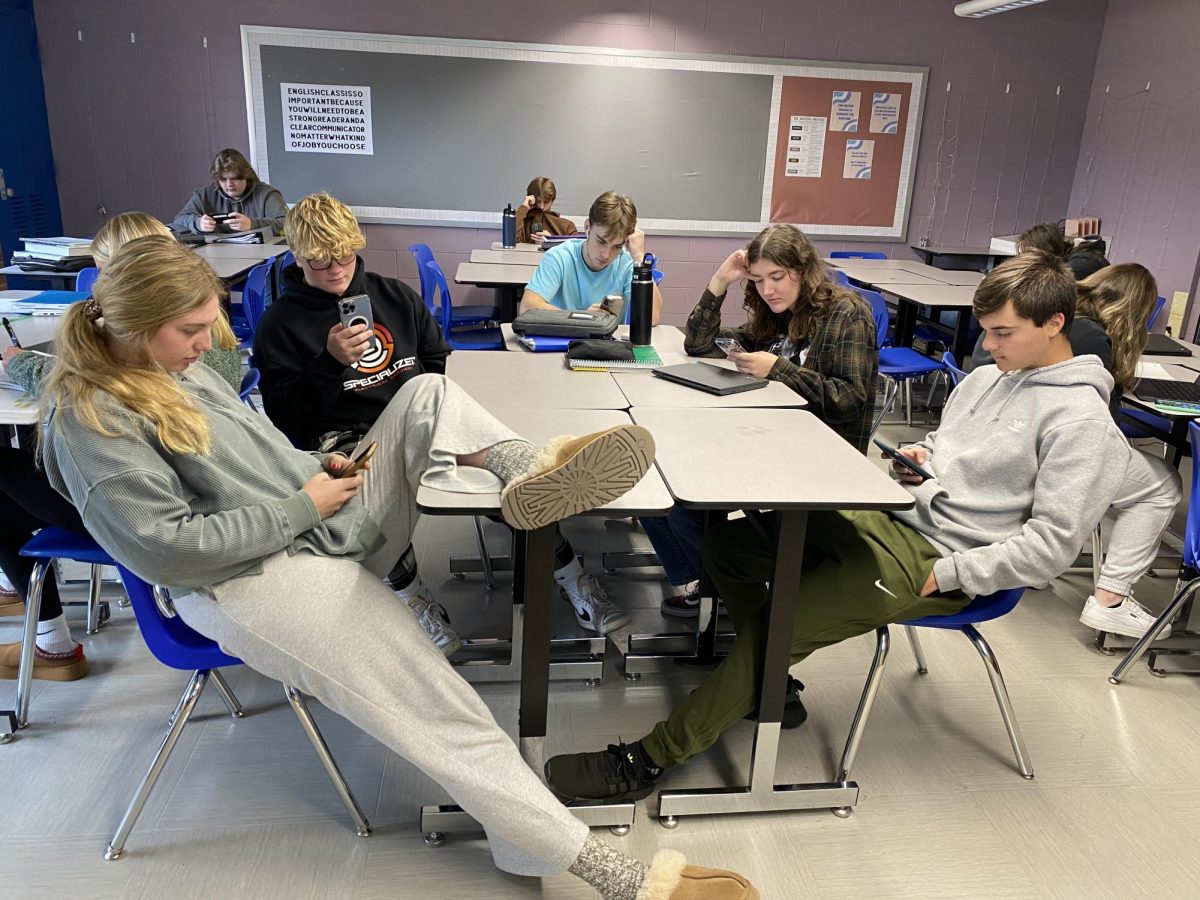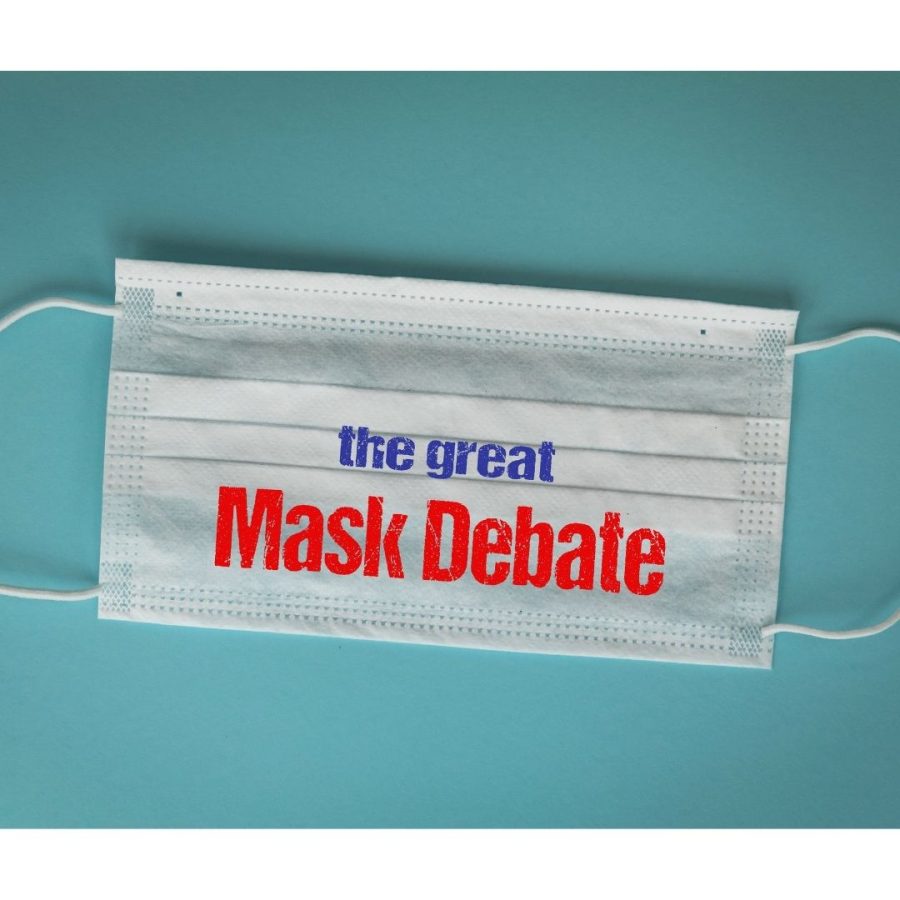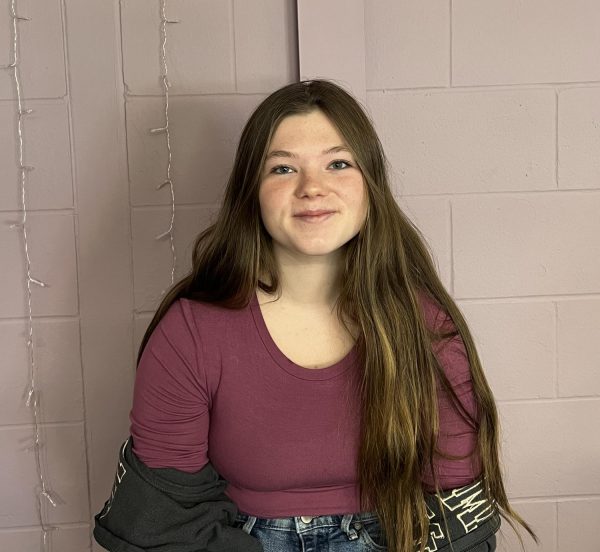If you were to go into almost any school and look around, you would likely see almost every student with a cell phone in hand. Texting, snapping, scrolling; as teenagers, we can’t get enough. Though many say that you need to simply “put the phone down”, it is not as simple as that.
Social media triggers the brain’s reward system, releasing dopamine, which is more commonly known as the “feel-good” chemical, in the same way some drugs do. Despite these facts, technology is not all bad; it can help to connect people who may not see each other often, form a sense of community, assist in the classroom by providing students with access to all kinds of data, and engage students. Valid arguments arise from both sides of the technology debate and can be seen inside Plainwell High School.
While technology helps students to share their work with others and reach a wider community, this can encourage cheating and the simple copy-and-paste method of completing an assignment. Students who copy-and-paste work from other students are bound to be less engaged in a classroom setting than if they were forced to do their work on paper, where there is no option to paste someone else’s work into theirs. Plainwell High School students were asked if they tend to be more engaged in class when writing on paper or when typing. Claire Vos (‘25) says, “Paper, because I actually have to write it down and think about it, and I can’t just copy and paste or something,” Nolan Edgell (‘25), speaks similarly, saying, “Paper, because if it’s on paper then I have to dial in, and if its on the Chromebook I can just flip the tab and play a game,” Students at Plainwell High School seem to be more engaged or “dialed in” as Edgell puts it, when writing on paper.
At Plainwell High School, students are allowed to bring their electronic devices into class, but different teachers have different policies on device usage during class time. Some teachers have basically no rules regarding phones, while others have a zero-tolerance policy and force students to keep their phones in their pockets during class. Edgell, even as an upperclassman still feels distracted by his phone in class, saying, “I choose my phone over my work any day because it’s more entertaining and there are more things to do,” Morgan Rayman (‘25), supports Edgell’s statement, saying, “I don’t focus if I have an electronic by me,” Vos on the other hand, thinks it could be more distracting to not have access to your phone during class, saying, “I think it’s more of a distraction when I’m not allowed to be on it because then it’s in my pocket going off, and if it’s on my desk and I’m paying attention, I don’t really care,”
According to a study performed by Common Sense Media, the typical American teenager spends an average of nine hours a day using technology. That accounts for over a third of one’s day in total. Newer models of the iPhone have a feature that shows the amount of times an individual picks up their phone in a day. When students at Plainwell High School were shown this feature, their results shocked them. Rayman had an average of 155 pick-ups per day, while Vos had an average of 161. Upon finding this out, Vos exclaimed, “That’s crazy! That’s awful,” This is eye-opening to the amount of times the average teenager feels the need to check their phone daily. While some feel like they waste their day on technology, Edgell claimed it is not always so, “I think it’s very valuable time because I think you got to let your brain relax for a little bit and do what it wants to do,” Rayman agreed with this, saying she tends to use technology to reset herself during the weekend.
Technology, like it or not, seems to be here to stay, in school life, social life, and life in general. While it certainly has its ups and downs, there doesn’t seem to be a right answer to the tech versus no tech problem. The only solution to the takeover of technology we’ve seen in the past few years is to control what one digests from the media and to limit oneself to a healthy amount of screen time per day. As we hear time and time again, everything should be allowed in moderation, and balance is key.






